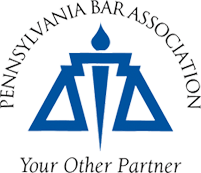Participating on call: Lou Rulli, Task Force Tri-Chair and Workgroup Co-chair, Kathy Manderino, Workgroup Co-chair Al Azen, and Gregg Behr, Sam Milkes, Sandra Brydon Smith, Gregg Warner and Jim Wells. PBA staff David Trevaskis and Dale Schell were also on the call.
Lou Rulli began the conference call with a brief overview of the PBA Task Force on Student Loan Forgiveness and Repayment Assistance, noting that the Funders Workgroup was one of the three work groups that the Task Force had divided itself into with a supporting research arm being provided by PBA and PLS staff. Rulli explained that each of the work groups was meeting by conference call over the summer to develop an action plan in their subject matter that will be presented to the full Task Force in the fall for comment, feedback, and possible adoption as priorities of the Task Force. He added that his vision of this first conference call of the working group was to brainstorm together to generate ideas for possible funding initiatives, with future calls or emails being used to explore and develop worthy ideas in more detail.
Rulli asked for the group to throw out ideas and Sam Milkes began the discussion with the suggestion that some sort of endowment might be created. He noted that large contributors could be solicited for a one time "ask" to create an endowment that could be tapped into over the years. There followed a general discussion of where such funds might be found. Among the sources identified were the Legal Services Corporation, individual donors, foundations, PHEAA, and IOLTA. Rulli noted that some creative things were being done around the country to find new sources of funds and he highlighted the New York effort that has been funded by a "tax" of $150 on Bar Exam applicants. The group explored this idea and passed on a request to the research team to explore fees in PA and elsewhere for the Bar Exam.
The Bar Exam fee discussion turned to other possible areas of fee add-ons, such as Sandy Brydon Smith's suggestion of adding a fee on CLE courses. Although it was noted that the Supreme Court had turned down the Task Force on the Delivery of Legal Services to the Needy's efforts in that area, the idea was expressed that there might be a new reaction with the current Supreme Court. Al Azen later raised the concern about the funding discussed here that such funding streams have the potential to raise significant dollars for civil legal aid generally and he cautioned that the group might not want to tie those funds into only loan forgiveness. Dedicating a portion of such funds to loan forgiveness as part of a larger legal services stream was discussed. Kathy Manderino then brought up the idea of exploring the whole notion of matching funds, noting how matching funds have broad appeal for foundations.
Manderino and Gregg Warner then contributed an overview of the legislative loan forgiveness initiatives, noting that each session numerous proposals are put forth. Manderino explained that the question often was simply "How do we fund it?" Programs are approved and established in law, but not always funded each year, she added. This was determined as another area ripe for research to find out how many such programs there are currently. Rulli identified HB 1530 as one example of pending legislation which deals with loan forgiveness/debt reduction for mental health professionals; Warner reported on the status of that bill and said it is now in the Education Committee of the Senate after unanimously passing the House. Following a discussion of PHEAA nursing programs that combine public and private monies, Behr and Rulli both agreed that that combination was an effective way to approach this problem. The general discussion of legislative initiatives led Manderino to remind the group that the work that will need to be done on removing the sunset provisions to the Access to Justice Act might open the way for reaching out to the legislature on this issue, too.
David Trevaskis' idea of a dedicated slot machine at each track for loan forgiveness brought laughter and the explanation that every group in Pennsylvania is already in line for such support. Gregg Behr at this point suggested that the general discussion had laid out three separate tracks of inquiry-one focusing on governmental/legislative initiatives, one focusing on the profession itself and a third focusing on private donors. Behr told the group about the program in North Carolina that has raised a million dollars for 150 grants since becoming the first statewide program in 1989 solely on donations from law schools, bars, other membership groups and individual donors. Al Azen shared with the group that the IOLTA Board at its last meeting had discussed whether a fee might be charged against out of state attorneys admitted to practice in Pennsylvania. Azen's research for the IOLTA Board showed that about half the states had such fees, most commonly $100 with the second most common charge being $250. He added that Pennsylvania had no such fee. The group asked for research on this topic to see what kind of funds might be generated.
Another possible source of funds-funds that escheat to the state-was brought up by Rulli as an area to explore with the research team.
The call then came to a conclusion after the group separated into subgroups, with Milkes, Manderion and Warner being the government/legislative subgroup (Azen and Rulli noted that they wanted to participate here, too), Azen, Jim Wells (who was congratulated for his first baby!), Sandy Brydon Smith and Rulli on the profession subgroup, and Gregg Behr on the private subgroup. Susan Sherman and Sheila Dow Ford, who were unable to be on the call, will be asked to join this subgroup.
|
